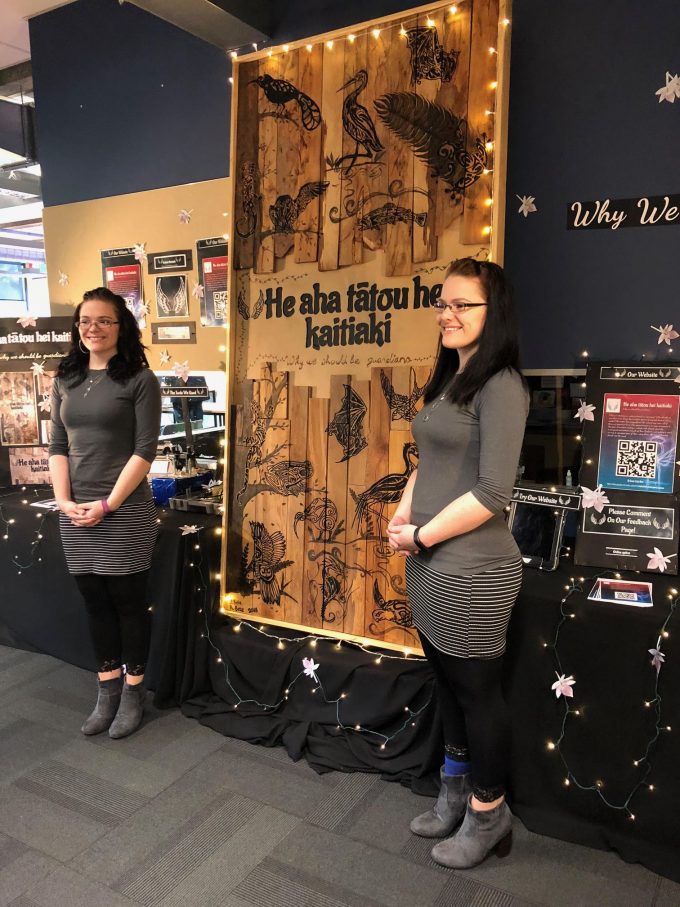
<h2><strong>What is STEAM? </strong>STEAM is generally defined as an integrated approach to teaching and learning that combines one or more of the following: science, technology, engineering, arts and mathematics.</h2>
<p><img class="aligncenter size-full wp-image-13599" src="https://www.schoolnews.co.nz/wp-content/uploads/2019/06/EDU-Principal-Speaks-Fordyce-Kauri-Dieback-matt-e1560144854135.jpg" alt="" width="680" height="510" /></p>
<p>This may take the form of a single subject being taught, but elements of other learning areas are woven through to deepen and enrich learning by applying and connecting learning across areas. At the other end of the spectrum is project-based learning that doesn’t focus on any one learning area but rather focuses on a wicked problem and elements of each of the STEAM learning areas are touched on throughout the project inquiry.</p>
<p>At Albany Senior High School (ASHS) we cover both approaches with our mathematics teachers regularly using Sphero robots to teach mathematical concepts through to our large scale ‘Impact Projects’ where student undertake independent projects often with a number of STEAM learning areas being falling out of their project inquiry.</p>
<p><img class="aligncenter size-full wp-image-13591" src="https://www.schoolnews.co.nz/wp-content/uploads/2019/06/EDU-Principal-Speaks-Design-thinking-process.jpeg" alt="" width="1496" height="746" /></p>
<p><strong>STEAM though Impact Projects</strong></p>
<p>The World Economic Forum reports that you need the ten skills listed below to thrive in 2020:</p>
<ol>
<li>Complex problem solving.</li>
<li>Critical thinking.</li>
<li> </li>
<li>People management.</li>
<li>Coordinating with others.</li>
<li>Emotional intelligence.</li>
<li>Judgement and decision making.</li>
<li>Service orientation.</li>
<li>Negotiation</li>
<li>Cognitive flexibility.</li>
</ol>
<p><img class="aligncenter size-full wp-image-13597" src="https://www.schoolnews.co.nz/wp-content/uploads/2019/06/EDU-Principal-Speaks-5-e1560144913269.jpg" alt="" width="680" height="765" /></p>
<p>Are traditional secondary school subjects really providing the opportunity to develop these skills? How might we ensure each and every young person develops the skills they will need to thrive? A focus on STEAM, particularly through project based learning is key to our young people genuinely developing these skills.</p>
<p><img class="aligncenter size-full wp-image-13593" src="https://www.schoolnews.co.nz/wp-content/uploads/2019/06/EDU-Principal-Speaks-1-e1560144977784.jpg" alt="" width="680" height="907" /></p>
<p>At ASHS we dedicate every Wednesday to Impact Projects where students get to focus on a large scale and long term project of their choice. Projects are developed by students who work with a project mentor (teacher) and are guided by four principles: student ownership and agency; substantial learning beyond the classroom; quality product; and participating and contributing with the community. This ensures our students have the opportunity to be an adult in the world and to develop the skills required to succeed in the 21st century, developing skills in time management, leadership, project management, and participation in an authentic context of their own making; making a very real contribution to our world.</p>
<p><img class="aligncenter size-full wp-image-13596" src="https://www.schoolnews.co.nz/wp-content/uploads/2019/06/EDU-Principal-Speaks-4-e1560145019442.jpg" alt="" width="680" height="837" /></p>
<p>Students are supported in using the <em>Stanford D. School Design Thinking Framework</em> to engage in creative complex problem solving, critical thinking and learn how to negotiate and collaborate while managing themselves and others. These are the very skills that employers and universities are increasingly looking for and are the skills our young people will need to thrive in an increasingly complex world. We believe each and every ASHS students has the opportunity to be future ready!</p>
<p><img class="aligncenter size-full wp-image-13595" src="https://www.schoolnews.co.nz/wp-content/uploads/2019/06/EDU-Principal-Speaks-3-e1560145061700.jpg" alt="" width="680" height="625" /></p>
<p>The Impact Projects also provide an authentic opportunity for students to engage in STEAM learning. STEAM themes project have included <em>Aiden Leddy’s Fernhill Escarpment Walkway Conservation Project</em>, Rosie and Jakz Betz’s art installation ‘He aha tatou hei kaitiaki’/’Why we should be guardians’ about NZ’s endangered and extinct creatures; Ben Bonne’s <em>Architecture for Compact Living Spaces</em>; John Packer’s <em>Boosted Ozone</em> (John aims to build a solar powered floating ozone generator to help repair the ozone layer) and Chris Fordyce’s <em>Kauri Dieback Sterilising Mat</em> (automatic wetting system), which is about to be trialled by the Auckland City Council. Each project touches on a number of STEAM learning areas, but more importantly does so through a natural and authentic need to draw on skills and knowledge from across the curriculum.</p>
<p><img class="aligncenter size-full wp-image-13594" src="https://www.schoolnews.co.nz/wp-content/uploads/2019/06/EDU-Principal-Speaks-2-e1560145129477.jpg" alt="" width="680" height="609" /></p>
<p>In conclusion, STEAM learning can be delivered in a number of ways, whether it be by the conscious integration of two or more STEAM learning areas or through the <a class="wpil_keyword_link" href="https://www.schoolnews.co.nz/2015/10/developing-opportunities-at-school-with-a-view/" title="opportunities" data-wpil-keyword-link="linked" target="_blank">opportunities</a> that present themselves in Impact Projects or any rich project-based learning task. Whatever way you approach STEAM learning, it is key that you do so with integrity by ensure learning is genuinely integrated (or connected) and that students have the opportunity to learning through collaborative inquiry and ideally leveraging the power of the arts to ensure learning is also as creative as possible.</p>

NZCER found generative AI tools are frequently used to support teaching and learning in primary…
The Ministry decision to discontinue a reading resource over kupu Māori has angered the sector…
NCEA was designed to broaden educational success, explains David Pomeroy from the University of Canterbury.
More than just a break from the classroom, a visit to a zoo or wildlife…
Without proper maintenance and care, trees can become a hazard. Are your trees in need…
Loneliness and social disconnection negatively impact wellbeing. A new WHO report finds teens feel the…
This website uses cookies.